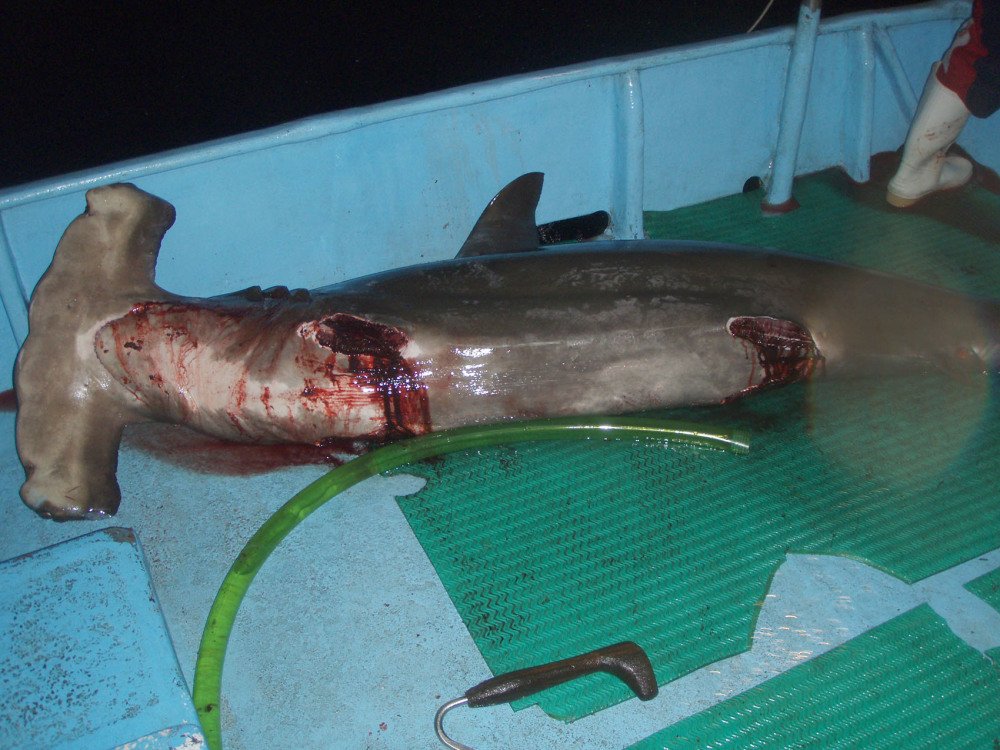Last week, Congress was in the process of including the Shark Fin Sales Elimination Act into the end-of-year legislative package. This bill would have removed the United States from the shark fin trade and made the USA one of the world leaders in shark conservation.
The federal shark fin trade legislation passed the House in 2019, and cleared the Senate Commerce Committee in 2020. This bipartisan bill enjoyed wide support, yet was blocked from inclusion by Florida Senator Marco Rubio. Florida recently became the 14th state to regulate shark fins; Rubio’s block is therefore in defiance of the majority of his constituency. A 2019 poll showed that nearly nine out of ten Americans (including eight in 10 Floridians) oppose the practice of shark finning, and about 80% of Florida voters support the Shark Fin Sales Elimination Act.
Instead of representing most Floridians, Rubio pandered to minority fishing interests, which are more concerned with profit from an unsustainable practice than with ocean and even economic health supported by shark diving and the dive industry.

Shark finning is a cruel and wasteful practice in which the fins are cut from the a living shark. The animal’s body is then discarded, leaving it to drown or bleed to death. Although shark finning is illegal in U.S. waters, shark fins continue to be sold from domestic fisheries, as well as imported from other countries and then sold to Asia. Once the fin has been removed and dried, it is virtually impossible to tell if the fin sold in the USA came from legally captured sharks, or from a shark that was finned, or even from endangered species.
Globally, sharks are in deep trouble. It is estimated that fins from up to 73 million – 100 million sharks enter the shark fin trade every year. This demand is contributing to the sharp declines in the populations of many of the most important ocean predators.
The demand for shark fin soup in Asia is driving sharks to extinction. Associated with wealth and prestige, it is considered a luxurious delicacy. Added to the soup for its texture and symbolism, shark fins do not add any nutritional value, and even contain contaminants such as mercury and organic toxins.
The demand for this product threatens the existence of many species of large sharks such as hammerheads, oceanic whitetips and mako sharks. Like elephant ivory and rhino horns, the demand for these body parts has threatened the survival of those species. To counter this, the USA and other countries, including China, have banned the sale of tusks and horns.
Sharks are the surgeons and the sanitarians of the sea. They keep the ocean healthy and clean, and keep marine ecosystems in balance. They are also economically valuable through dive, photography and tourism services. The value of dried shark fins in Hong Kong can be several hundred dollars each. The value to a fishermen might be $100, the price of a bowl of shark fin soup at a high end restaurant. In Latin America or Africa a fisherman might receive a few dollars for the fins, and nothing for the carcass. The marine ecosystems in these nations are suffering from collapse largely driven by the greed of middlemen, the ignorance of consumers and the profits driven by the value of these blood diamonds of the sea.

Yet in some countries, such as the island nation of Palau, a world famous dive destination for shark encounters and world’s first shark sanctuary, the lifetime value of a single reef shark has been pegged at $1.9 million. A diver or photographer prefers to see the shark alive and swimming, and will travel and boost the local economy to see it. In Florida, the annual value of sharks has been estimated at more than $377 million. As sharks decline globally- by one scientific estimate, 90% of all hammerheads have already disappeared- divers are seeking sharks around the globe and stimulating a billion-dollar economy. Ocean states like Florida can bolster their tourist economy by banning the domestic fin trade and increasing protection for our sharks and their habitat.
The USA has some of the best-managed fisheries in the world. Yet, by allowing the import, export and sales of shark fin, we are contributing to cruelty and overfishing, and participating in the wide-scale extinction of the ocean’s most perfect and important predator.
Sharks are worth more alive than dead. Sharks need their fins to swim, and marine ecosystems and humans need sharks for the health of the ocean. The USA must demonstrate ocean leadership and reject shark finning and the overfishing of sharks.